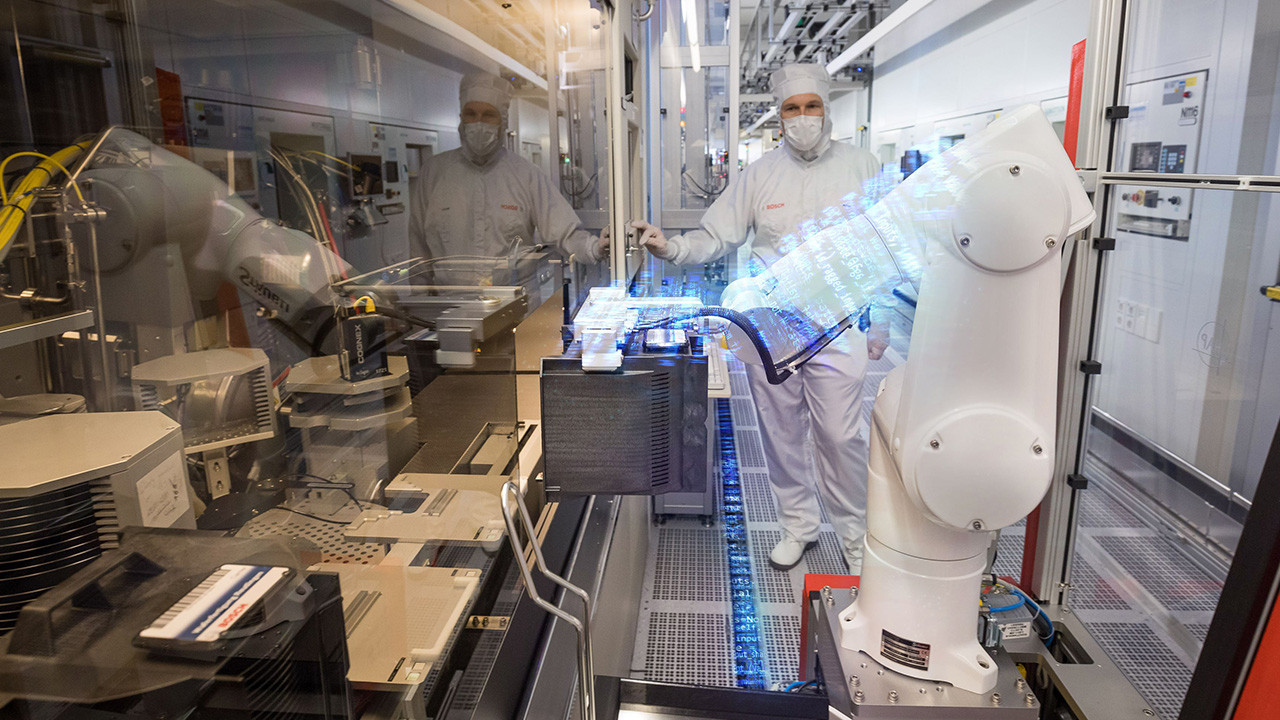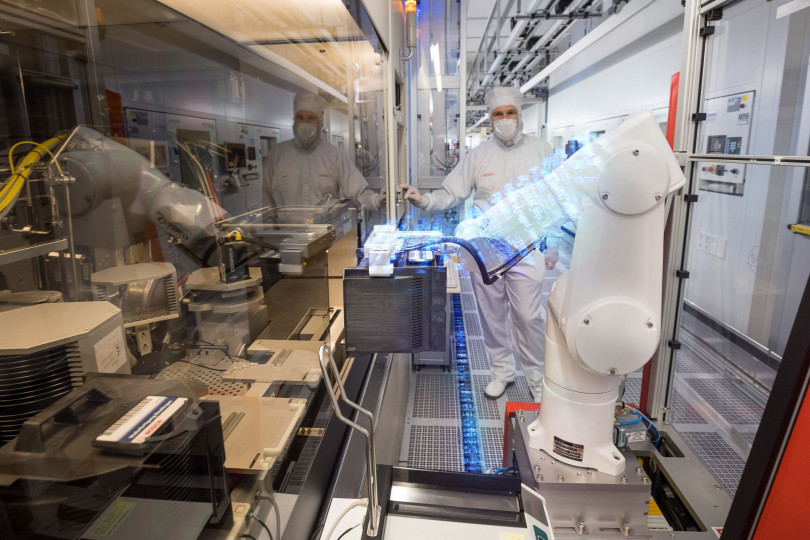Stuttgart, Germany/Las Vegas, NV – Energy crisis and climate change: the burning question on everyone’s lips is how humanity can meet its demand for sustainable and affordable energy. This is evidenced by the Bosch Tech Compass 2023, a representative survey conducted in seven countries worldwide. The survey will be presented at CES in Las Vegas (January 5 to 8, 2023).
Sustainable technologies and economic success
Respondents largely agree on the economic potential of sustainable solutions and products: a full 82 percent believe that the more a company commits to sustainable technologies, the more economically successful it will be in the future. This view is most prevalent in Brazil and India (each 87 percent); by comparison, it is least prevalent in the United States (73 percent). When it comes to the business community’s commitment to climate action, the survey suggests that there is still room for improvement: more than half of those polled (58 percent) believe that only a minority of businesses are seriously committed to sustainability at present. “Combating climate change is the biggest task of our age. People are therefore right to expect companies to provide technical solutions to these issues. Bosch is tackling this challenge and is firmly committed to promising technologies such as hydrogen electrolysis,” says Dr. Stefan Hartung, chairman of the Bosch board of management.
Combating climate change with different technologies
Many parts of the world are shifting to renewable energy, but people across the globe are still reluctant to completely abandon nuclear power and fossil fuels such as gas and oil for power generation. A total of 62 percent of respondents are in favor of promoting solar power, while 44 percent want to see efforts to promote wind-power technologies. However, these opinions differ by country. In China (36 percent) and France (31 percent), support for promoting nuclear power technology is still comparatively strong (23 percent globally). People in the United States (oil: 21 percent, gas: 24 percent) and India (oil: 22 percent, gas: 23 percent) remain significantly more committed to oil and gas technologies than those in other countries (global figures: oil: 14 percent, gas: 15 percent). In Germany, by contrast, there is little desire for nuclear power (13 percent) and fossil fuels (oil: 4 percent, gas: 8 percent) – many Germans reject fossil energy and favor the expansion of solar and wind power (solar: 63 percent, wind: 50 percent) as well as hydrogen (51 percent).
Trust in technology is growing
The Tech Compass shows that, in a world beset by uncertainties, trust in technology has grown since the previous year. Worldwide, 75 percent of the people polled now believe that technological progress can make the world a better place (2022: 72 percent*). What’s more, 83 percent of respondents believe that technology holds the key to combating climate change (2022: 76 percent*). “Digitalization can play a special role in sustainability,” Hartung says. “We are investing in the development and expansion of promising new technologies, with a focus on sustainability, mobility, and Industry 4.0.”
Mobility in the metaverse
Apart from sustainability, the Tech Compass also provides interesting insights into other issues – such as the metaverse. In this virtual world, where people interact as avatars in a three-dimensional space modeled on reality, mobility will also play a role: 43 percent of respondents can imagine buying a car for the metaverse. Interest and willingness to do so are especially high in China (75 percent) and India (69 percent). And although respondents in Brazil (47 percent), the U.S. (33 percent), the U.K. (30 percent), Germany (26 percent), and France (23 percent) are still somewhat more skeptical, the numbers show that the desire for a car exists not only in the real world, but in virtual reality as well.
About the survey:
For the survey, people aged 18 and over in seven countries (Brazil, China, Germany, France, India, the U.K., and the U.S.) were polled online on behalf of Robert Bosch GmbH by the market researchers Gesellschaft für Innovative Marktforschung mbH (GIM) in September 2022. In Germany, France, and the United Kingdom, 1,000 people were polled per country; in Brazil, China, India, and the U.S., it was 2,000 people each. The random samples are representative of their respective countries in terms of region, gender, and age (Brazil, Germany, France, U.K., U.S.: 18 to 69 years / China, India: 18 to 59 years).
*To make the survey easier to read and interpret, it compares the global average figures for 2023, which are based on 7 countries, with the global average figures for 2022, which are based on 5 countries. Taking the same 5 countries from the Bosch Tech Compass 2022 as the basis for calculating the global average figure for 2023 yielded a similar result.
Bosch at CES 2023:
• PRESS CONFERENCE: Wednesday, January 4, 2023,
from 8:00 to 8:45 a.m. PST (17:00–17:45 CET) in Ballroom F, Mandalay Bay Hotel, Las Vegas South Convention Center, Level 2, as well as livestreamed on the Bosch Media Service.
• BOOTH: January 5 – 8, 2023, in the Central Hall, booth #16115.
• LIVE DRIVING EXPERIENCE: Fusion of digital cockpit technologies and advanced driver assistance systems domains: January 5 – 8, 2023, LVCC, Central Hall, Central Plaza.
• FOLLOW the Bosch CES 2023 highlights on Twitter: #BoschCES.
• PANEL “Industrial Transformation with Robots Powered by AI” on Thursday, January 5, 2023, 10:00 a.m., Las Vegas Convention Center
West / W216-218, session with Zico Kolter, Chief Scientist of AI at Bosch.
Mónika Hack
+36 70 510 5516
The Bosch Group is a leading global supplier of technology and services. It employs roughly 402,600 associates worldwide (as of December 31, 2021). The company generated sales of 78.7 billion euros in 2021. Its operations are divided into four business sectors: Mobility Solutions, Industrial Technology, Consumer Goods, and Energy and Building Technology. As a leading IoT provider, Bosch offers innovative solutions for smart homes, Industry 4.0, and connected mobility. Bosch is pursuing a vision of mobility that is sustainable, safe, and exciting. It uses its expertise in sensor technology, software, and services, as well as its own IoT cloud, to offer its customers connected, cross-domain solutions from a single source. The Bosch Group’s strategic objective is to facilitate connected living with products and solutions that either contain artificial intelligence (AI) or have been developed or manufactured with its help. Bosch improves quality of life worldwide with products and services that are innovative and spark enthusiasm. In short, Bosch creates technology that is “Invented for life.” The Bosch Group comprises Robert Bosch GmbH and its roughly 440 subsidiary and regional companies in some 60 countries. Including sales and service partners, Bosch’s global manufacturing, engineering, and sales network covers nearly every country in the world. With its more than 400 locations worldwide, the Bosch Group has been carbon neutral since the first quarter of 2020. The basis for the company’s future growth is its innovative strength. At 128 locations across the globe, Bosch employs some 76,100 associates in research and development, of which more than 38,000 are software engineers.
The company was set up in Stuttgart in 1886 by Robert Bosch (1861–1942) as “Workshop for Precision Mechanics and Electrical Engineering.” The special ownership structure of Robert Bosch GmbH guarantees the entrepreneurial freedom of the Bosch Group, making it possible for the company to plan over the long term and to undertake significant upfront investments in the safeguarding of its future. Ninety-four percent of the share capital of Robert Bosch GmbH is held by Robert Bosch Stiftung GmbH, a charitable foundation. The remaining shares are held by Robert Bosch GmbH and by a corporation owned by the Bosch family. The majority of voting rights are held by Robert Bosch Industrietreuhand KG, an industrial trust. The entrepreneurial ownership functions are carried out by the trust.
Additional information is available online at www.bosch.hu, iot.boschblog.hu, www.bosch.com, www.iot.bosch.com, www.bosch-press.com, www.twitter.com/BoschPresse





